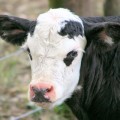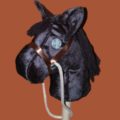Companion Animals
Many people think of depression and loneliness as things that affect humans, but other species are just as susceptible.
Horses in particular often fall into depression if they do not have a companion. Horses are group animals by nature. In the wild they run in herds and that mentality stayed with the animals even after they were domesticated by humans. Because of this group instinct, horses can often become lonely when they are kept as pets.
Horses will bond with many creatures including the humans who own them. In today’s world, however, many people do not have as much time to spend with their animals as they would like. Many horses find themselves spending long, lonely hours in a barn or pasture while their owners are at work. There are some horses who don’t mind, but most prefer to bond with someone.
A horse that is suffering from depression and loneliness often displays similar symptoms to a depressed human. The horse will seem withdrawn, lose its perkiness, and just generally mope about, not really getting excited about anything. If a horse shows these signs, it is time for a companion animal.
While a second horse is probably the best companion animal, this can be impractical for a variety of reasons. A second horse would produce a lot of additional expense that the owner might not be able to afford. A second horse would also mean the need for a lot of room. As such, owners sometimes to turn to other species to act as companions.
Miniature horses, dogs, sheep, goats, and even cats can all make fine companion animals for a horse. Due to their smaller size, this solves the problem of having to build an additional barn. These animals also tend to eat less and are not as prone to the health ailments that often follow a full sized horse.
It is important not to force a companion animal on a horse. For some horses, only another horse will do, and the horse may become violent toward any other species of companion animal. For most horses, however, they will bond quite well with a smaller animal as long as they are given the time to do so.
Introduce the companion animal slowly, and only in the presence of a human that the horse knows and trusts. Gradually increase the length of the companion animal’s visit until you can be sure the horse won’t react badly to the animal. Once the two animals have gotten used to each other, they will bond very well.
Some horses bond so well with their companion animals that it can be dangerous to separate the two. We used to have a calf that we would let into our house like a dog, but we had to stop because it upset the horse so much that he would run around the house in frantic circles looking for the calf.
The companion animal does not have to be left with the horse at all times. Even having it in a nearby pen where the two can see and hear each other will do. However, the animals should spend at least a little time together in the same pen everyday, as animals bond by touch.
Copyright © Amber Reifsteck ~ The Woodland Elf
The information provided on this website is for general information purposes only. If you choose to rely on the information on this website, you do so at your own risk and you assume responsibility for the results. (Full disclaimer here)
Enjoy this post? Click here to subscribe by email and get new posts delivered to your inbox.Ads by Google








